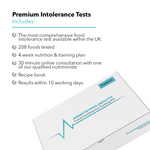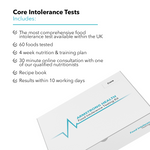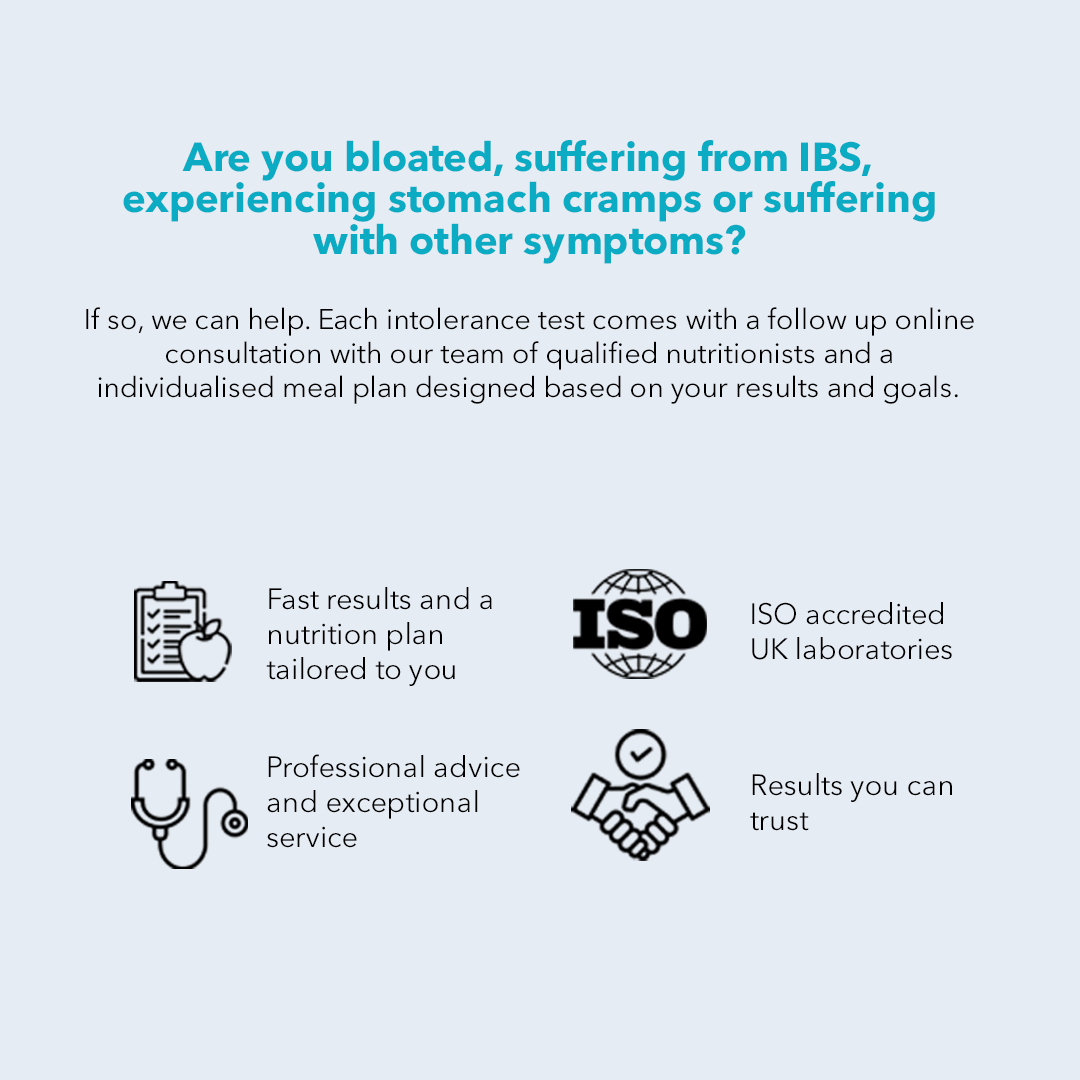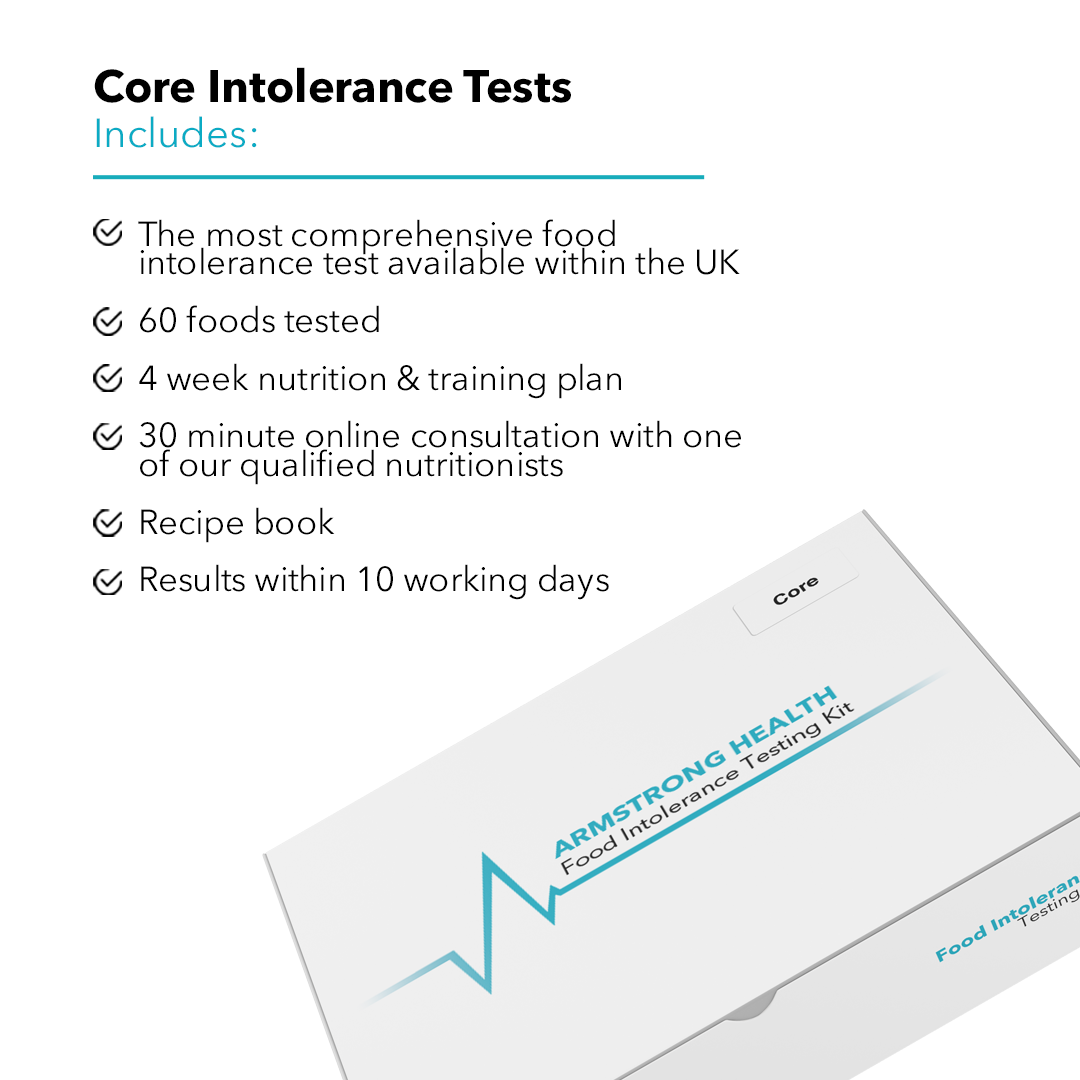When it comes to mental health, many factors contribute to our overall well-being, from stress levels to sleep patterns. One aspect of mental health that is often overlooked, however, is the potential link between hidden food intolerances and their impact on our emotional and cognitive state. By identifying and addressing these food sensitivities through comprehensive food intolerance testing, individuals can embark on a journey to improved mental health and a more balanced outlook. At Armstrong Health Specialists, the most comprehensive food intolerance and sensitivity tests available within the UK are designed to help clients gain invaluable insights into their body's unique response to the foods they consume.
Emerging research is beginning to shed light on the intricate relationship between our gut health and brain function – the gut-brain axis. This connection highlights the critical role nutrition plays in supporting optimal mental wellness. When the body struggles to digest or process certain foods due to intolerances, it can lead to imbalances within the gut, which in turn may contribute to mental health challenges such as anxiety, depression, or brain fog.
By offering comprehensive food intolerance and sensitivity tests at Armstrong Health Specialists, individuals can better understand their body's unique reaction to specific foods, identify possible triggers of mental health concerns, and tailor their diet to promote mental wellness. Learning more about the powerful connection between food intolerances and mental health can empower individuals to take proactive steps to enhance their overall well-being. Dive into the world of food intolerances and mental health, and discover how comprehensive testing can support you in your mental wellness journey.
Enhancing Mental Wellness: The Role of Food Intolerance Testing in Supporting Mental Health
Understanding the Gut-Brain Axis: Connecting Food Intolerances with Mental Health
The gut-brain axis refers to the complex, bidirectional communication between our gastrointestinal system and our brain. This connection is facilitated by intricate networks involving hormones, neurotransmitters, and immune system components. Research is beginning to reveal the profound impact of our gut health on our mental and emotional well-being, emphasising the importance of addressing food sensitivities that may be putting stress on the gut-brain axis.
Food intolerances can disrupt healthy gut function, potentially leading to imbalances in the gut microbiome and triggering inflammatory responses. These disturbances can negatively affect the gut-brain axis, potentially contributing to various mental health issues, from mood disorders such as anxiety and depression to cognitive challenges like brain fog and poor concentration.
Comprehensive Food Intolerance Testing: Uncovering Hidden Triggers
Armstrong Health Specialists' comprehensive food intolerance testing can reveal food sensitivities that may be impacting your mental health. By identifying and addressing these hidden triggers, individuals can foster a healthier gut-brain axis and support their mental wellness.
Understanding your unique food sensitivities allows you to make informed decisions about your diet and make the necessary adjustments to avoid the potential negative effects of food intolerances on your mental health.
Tailoring Your Diet for Optimal Mental Wellness
Once your specific food intolerances have been identified through comprehensive testing, you can develop a personalised diet plan that prioritises gut health and fosters improved mental wellness. Consider the following guidelines when crafting your tailored nutrition plan:
- Eliminate or reduce consumption of trigger foods
- Consume a wide variety of whole, natural foods that are rich in nutrients
- Include gut-friendly foods, such as fermented foods and natural sources of prebiotics and probiotics
- Hydrate regularly, as adequate water intake supports digestion and overall gut health
A nutritional approach designed to support your gut-brain axis can contribute to the overall improvement of your mental wellness.
Incorporating Lifestyle Changes to Boost Mental Health
Addressing food intolerances is an essential step in enhancing your mental well-being. However, other lifestyle factors can also influence your mental health. Incorporate the following strategies to support a comprehensive approach to emotional and cognitive wellness:
- Prioritise sleep: Establish a consistent sleep schedule and improve your sleep environment to ensure quality rest
- Exercise regularly: Engage in regular physical activity to boost mood and mental clarity, foster better sleep, and reduce stress
- Manage stress: Incorporate stress reduction techniques such as meditation, deep breathing exercises, and mindfulness practices to maintain emotional balance and resilience
- Seek social connections: Cultivate relationships and engage with supportive communities to promote mental well-being and emotional support
Coupling these lifestyle strategies with a tailored diet free of food intolerances can significantly improve your mental health and overall quality of life.
Unlock Improved Mental Health through Food Intolerance Testing and Holistic Wellness
Comprehending the intricate connection between food intolerances and mental health is crucial for those seeking to foster a more balanced and harmonious state of mind. Comprehensive food intolerance testing from Armstrong Health Specialists provides invaluable insights into your body's unique sensitivities, enabling you to make well-informed choices for your dietary and mental well-being.
Invest in a UK food intolerance test and embrace a personalised approach to nutrition and mental wellness. Experience the profound benefits of a holistic, evidence-based approach to supporting your gut-brain axis, and embark on a journey towards improved mental health and overall well-being. Unlock the potential for a happier, healthier mind by addressing hidden food intolerances and cultivating a comprehensive wellness plan today.




























